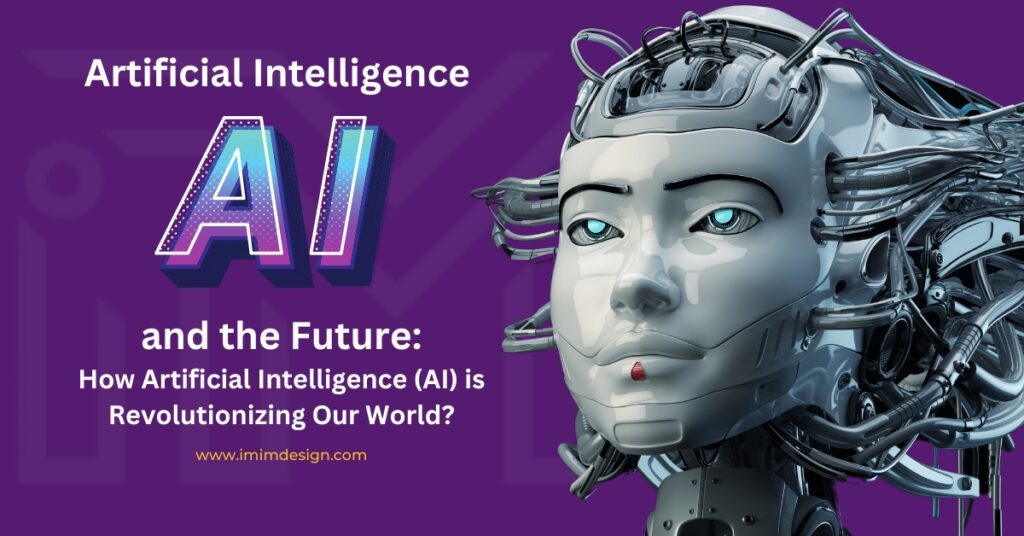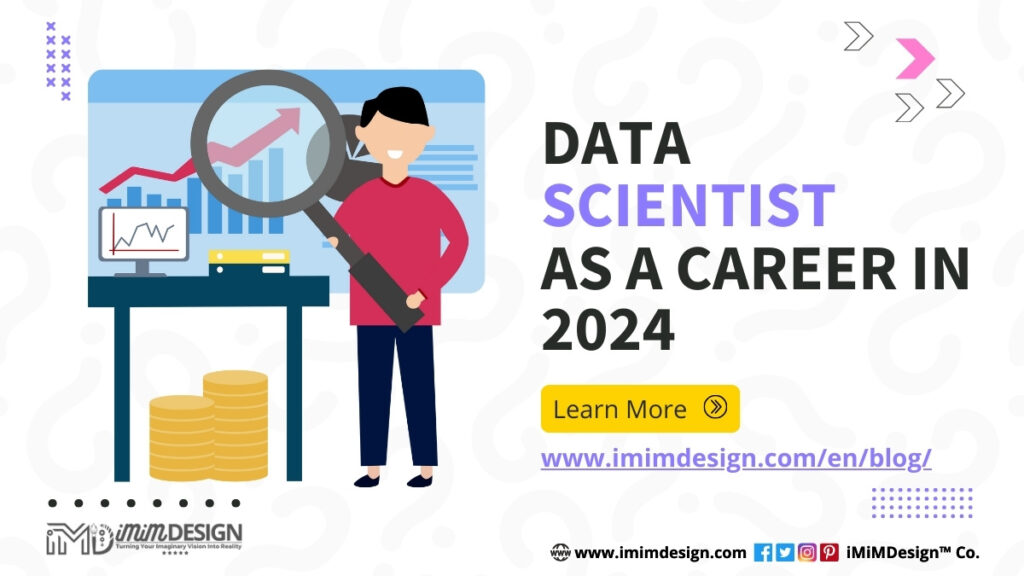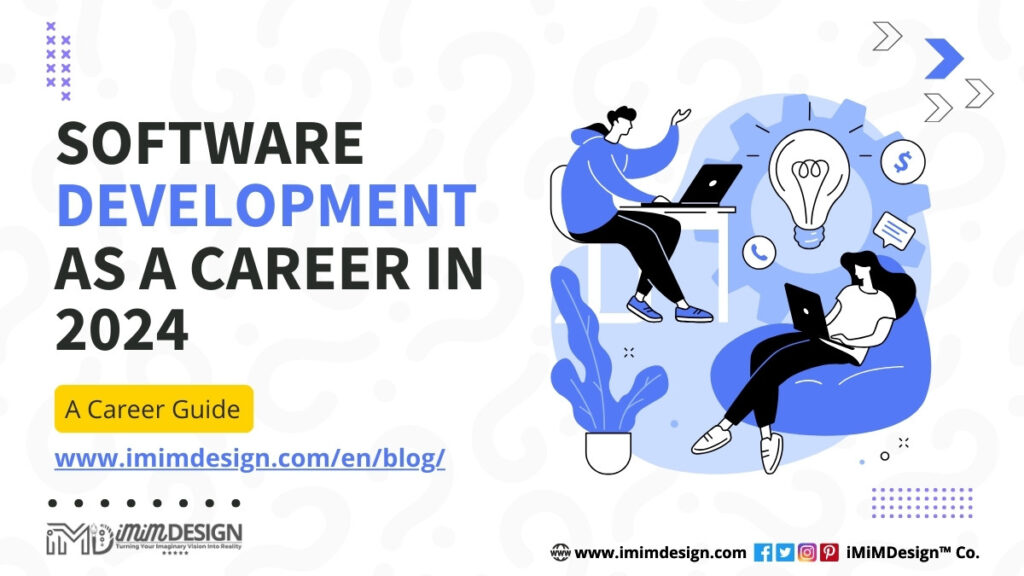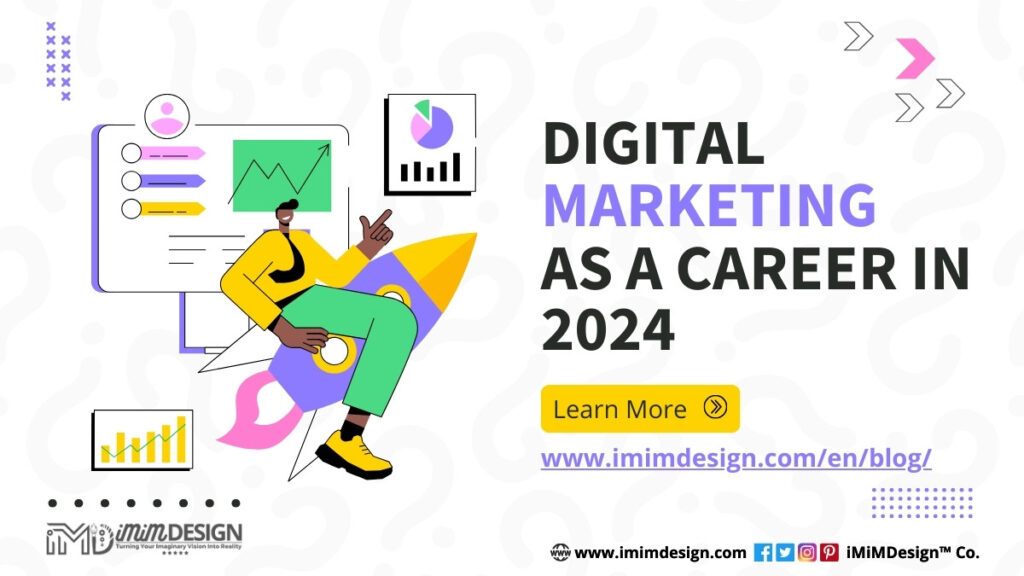Artificial Intelligence (AI) and the Future: How Artificial Intelligence (AI) is Revolutionizing Our World
Artificial intelligence (AI) is transforming the world we live in, and its impact will only continue to grow in the coming years. From self-driving cars to personalized healthcare, AI has the potential to revolutionize virtually every aspect of our lives. In this article, we’ll explore how AI is the future, its potential, and the challenges it presents. We’ll also look at how AI is changing industries, creating new opportunities, and changing the way we interact with technology.
- Artificial Intelligence (AI) and the Future: How Artificial Intelligence (AI) is Revolutionizing Our World
- What is Artificial Intelligence (AI)?
- How Artificial Intelligence (AI) is Changing Industries
- Artificial Intelligence (AI) in Healthcare Industry
- Artificial Intelligence (AI) in Transportation Industry
- Artificial Intelligence (AI) in Finance Industry
- Artificial Intelligence (AI) in Education Industry
- Artificial Intelligence (AI) is Changing the Workplace
- Artificial Intelligence (AI) is Creating New Opportunities
- The Potential of Artificial Intelligence (AI)
- The Challenges of Artificial Intelligence (AI)
- The Future of Artificial Intelligence (AI)
- Final Words
What is Artificial Intelligence (AI)?

Artificial intelligence refers to the development of algorithms and systems that can perform tasks that normally require human intelligence. This includes tasks like understanding natural language, recognizing patterns, and making decisions based on data. AI algorithms can be trained to learn from data, which means they can improve their performance over time.
AI is being used in a wide range of applications, including healthcare, transportation, finance, education, and more. AI-powered systems can analyze vast amounts of data and provide insights that can help humans make better decisions.
AI can be categorized into two types – Narrow AI and General AI. Narrow AI is designed to perform a specific task and is the type of AI we use today. It includes applications like speech recognition, image recognition, and machine learning. On the other hand, General AI is designed to perform any intellectual task that a human can do, and it is still a long way from being realized.
How Artificial Intelligence (AI) is Changing Industries
AI is being used in a wide range of applications, including healthcare, transportation, finance, education, and more. AI-powered systems can analyze vast amounts of data and provide insights that can help humans make better decisions.
Artificial Intelligence (AI) in Healthcare Industry

Artificial Intelligence or AI is transforming industries in a variety of ways. One of the most exciting and promising areas where AI is making a huge impact is in healthcare. In healthcare, AI is being used to analyze medical images and provide more accurate diagnoses. For example, Google DeepMind is developing AI that can detect signs of cancer in medical scans with high accuracy, potentially leading to earlier diagnosis and better outcomes for patients.
The potential for AI in healthcare is enormous, from personalized medicine to drug discovery. AI is already being used to detect diseases earlier and more accurately than ever before. For example, AI-powered tools are being used to detect skin cancer, which can be difficult for human doctors to diagnose accurately. AI is also being used to analyze medical images such as X-rays and CT scans, which can help doctors diagnose diseases more quickly and accurately.
AI is also being used in drug discovery. Drug discovery is a time-consuming and expensive process, but AI can help speed it up. AI algorithms can analyze vast amounts of data and identify potential drug candidates. This can help researchers focus their efforts on the most promising candidates and save time and resources.
Another area where AI is making a huge impact is in personalized medicine. Personalized medicine is the practice of tailoring medical treatment to individual patients. AI algorithms can analyze a patient’s genetic data and medical history to predict their response to a particular treatment. This can help doctors select the best treatment for each patient and improve their chances of recovery.
Artificial Intelligence (AI) in Transportation Industry

Another area where AI is transforming our world is in transportation. Self-driving cars are no longer a futuristic dream – they’re already here. Companies like Tesla, Google, and Uber are all investing heavily in self-driving cars, and the technology is advancing rapidly. Self-driving cars have the potential to reduce accidents and traffic congestion, improve energy efficiency, and make transportation more accessible to everyone.
In transportation, AI is being used to develop autonomous vehicles that can reduce accidents and improve traffic flow. Self-driving cars are becoming increasingly common, and companies like Tesla, Waymo, and Uber are investing heavily in this technology.
AI is also being used in traffic management systems. AI algorithms can analyze traffic patterns and optimize traffic flow. This can help reduce traffic congestion and improve travel times.
| Check Our Sponsor |
|---|
| Sponsored – Advertisement – Promoted |
|---|
Artificial Intelligence (AI) in Finance Industry
In finance, AI is being used to analyze financial data and make better investment decisions. AI-powered trading algorithms can analyze market data in real time and make trades based on this information, potentially leading to better returns for investors.
Artificial Intelligence (AI) in Education Industry

In education, AI is being used to develop personalized learning experiences that can help students learn more effectively. AI-powered tutoring systems can analyze a student’s learning style and provide tailored feedback and support.
Education is another area where AI is making a huge impact. AI-powered tools can personalize learning for each student, providing them with a customized education experience. For example, AI algorithms can analyze a student’s learning style and adapt the curriculum to suit their needs. This can help students learn more effectively and improve their academic performance.
AI is also being used in grading and assessment. AI algorithms can grade essays and exams more quickly and accurately than human teachers. This can help reduce the workload for teachers and provide students with faster feedback.
AI is also being used in language translation. AI-powered translation tools can translate text and speech in real-time, making it easier for people to communicate across language barriers.
Artificial Intelligence (AI) is Changing the Workplace

Artificial Intelligence or AI is also transforming the workplace. AI-powered tools can automate repetitive tasks, such as data entry and customer service, freeing up human workers to focus on more complex tasks. This can improve productivity and reduce costs for businesses.
AI is also being used in human resources. AI algorithms can analyze resumes and job applications, helping companies identify the best candidates for a job. This can help reduce bias in the hiring process and improve diversity in the workplace.
AI is also being used in finance. AI algorithms can analyze vast amounts of financial data and identify patterns and trends. This can help investors make better investment decisions and reduce the risk of financial fraud.
| Check Our Sponsor |
|---|
| Sponsored – Advertisement – Promoted |
|---|
Artificial Intelligence (AI) is Creating New Opportunities
Artificial intelligence or AI is not just changing existing industries – it’s also creating new opportunities. For example, AI-powered virtual assistants like Siri and Alexa are creating new opportunities in the voice-activated technology industry. AI is also creating new opportunities in robotics, automation, and machine learning.
AI is revolutionizing the way we interact with technology. Voice-activated assistants like Siri and Alexa are just the beginning. In the future, we could see more advanced AI-powered virtual assistants that can understand and respond to natural language, recognize emotions, and even carry out complex tasks like booking travel or managing finances.
AI is also changing the way we create and consume media. AI algorithms can analyze vast amounts of data and create personalized recommendations for movies, TV shows, and music. This can help people discover new content they may not have found otherwise.
AI is also being used in creative industries like art and music. AI algorithms can generate new works of art and music, and even collaborate with human artists to create something truly unique.
AI is also changing the way we interact with the world around us. Augmented reality (AR) and virtual reality (VR) technologies are becoming more advanced, and AI is playing a big role in their development. AI algorithms can analyze the environment and create realistic 3D models, making AR and VR experiences more immersive than ever before.
The Potential of Artificial Intelligence (AI)
The potential of AI is enormous, and it is not limited to just a few industries. AI has the potential to impact every industry, and it is already transforming the way we live and work. Here are some of the areas where AI has enormous potential:
Healthcare – AI can be used to analyze medical data and provide more accurate diagnoses, develop personalized treatment plans, and even develop new drugs.
Transportation – Self-driving cars have the potential to reduce accidents and improve traffic flow, making our roads safer and more efficient.
Finance – AI can be used to analyze financial data and make better investment decisions, leading to better returns for investors.
Manufacturing – AI can be used to optimize production processes, reduce waste, and improve quality control. It can also be used to predict maintenance needs, reduce downtime, and increase efficiency.
Energy – AI can be used to optimize energy usage, improving efficiency and reducing waste. It can also be used to develop new, more efficient energy sources.
Retail – AI can be used to analyze customer data and provide personalized shopping experiences. It can also be used to optimize inventory and supply chain management.
Agriculture – AI can be used to analyze soil and weather data, improving crop yields and reducing waste.
Education – AI can be used to develop personalized learning experiences that cater to individual student needs, improving learning outcomes.
Security – AI can be used to analyze security data and detect threats more accurately, improving safety and security.
The Challenges of Artificial Intelligence (AI)
While AI has enormous potential, it’s not without its challenges. One of the biggest challenges is ensuring that AI algorithms are fair and unbiased. AI algorithms are only as good as the data they’re trained on, and if that data is biased, the algorithm will be biased too. This can lead to unfair and discriminatory outcomes, especially in areas like hiring and criminal justice.
Another challenge is ensuring that AI algorithms are transparent and explainable. AI algorithms can be incredibly complex, making it difficult for humans to understand how they make decisions. This can be problematic in areas like healthcare and finance, where decisions made by AI algorithms can have serious consequences.
There’s also the challenge of ensuring that AI algorithms are secure and protected against cyberattacks. As AI becomes more widespread, it’s likely that hackers will find ways to exploit vulnerabilities in AI systems.
Finally, there’s the challenge of ensuring that AI doesn’t replace human workers entirely. While AI can automate many tasks, there will always be a need for human workers to carry out more complex tasks that require creativity, empathy, and critical thinking.
| Check Our Sponsor |
|---|
| Sponsored – Advertisement – Promoted |
|---|
The Future of Artificial Intelligence (AI)
The future of AI is bright, and it is likely to impact every aspect of our lives. Here are some of the trends that we can expect to see in the future:
AI-powered Virtual Assistants – Virtual assistants like Siri and Alexa are just the beginning. In the future, we can expect to see more advanced AI-powered virtual assistants that can carry out complex tasks like booking travel and managing finances.
Self-driving Vehicles – Self-driving cars are becoming increasingly common, and we can expect to see more autonomous vehicles on the road in the coming years.
Personalized Healthcare – AI can be used to develop personalized treatment plans and develop new drugs, improving healthcare outcomes for individuals.
Artificial Intelligence (AI) in Education – AI-powered tutoring systems can analyze a student’s learning style and provide tailored feedback and support, improving learning outcomes.
AI-powered Creativity – AI algorithms can generate new works of art and music, and even collaborate with human artists to create something truly unique.
Final Words
AI is the future, and its potential is enormous. From healthcare to transportation, education to finance, AI is transforming every aspect of our lives. AI is creating new opportunities, revolutionizing industries, and changing the way we interact with technology. However, AI is not without its challenges. Ensuring that AI algorithms are fair, transparent, and secure will be key to unlocking the full potential of AI. Ultimately, the future of AI will depend on our ability to harness its power while also addressing its challenges.
Latest Posts






